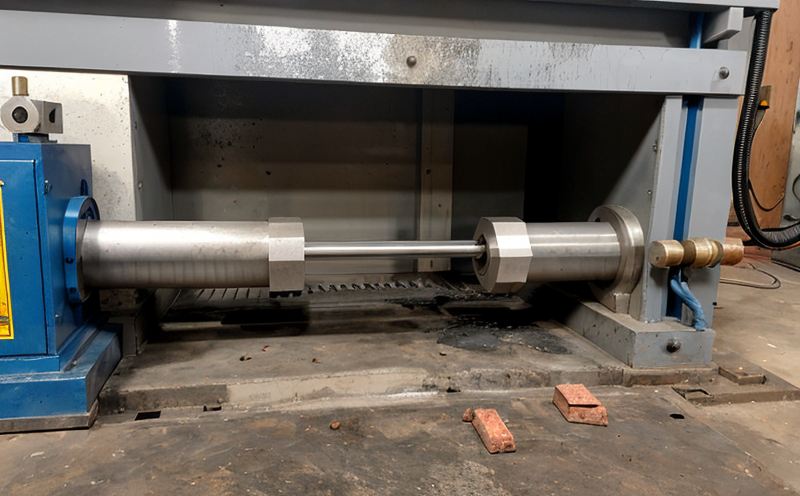ISO 844 Compression Testing of Cellular Plastics
The ISO 844 standard provides a comprehensive method to determine the compressive properties of cellular plastics. This test is crucial in ensuring the quality and reliability of materials used across various industries such as automotive, aerospace, and packaging. The test focuses on evaluating the load-bearing capacity and deformation behavior under compression forces.
The testing process involves preparing specimens cut from the cellular plastic material to standard dimensions. Specimens are then placed into a compression testing machine where they undergo uniaxial compression until failure occurs or specified displacement is achieved. The applied force, specimen displacement, and any other relevant parameters are continuously monitored and recorded during this process.
Understanding the mechanical properties of cellular plastics through ISO 844 testing helps manufacturers optimize their product designs for better performance and durability. For instance, in automotive applications, accurate knowledge of compressive strength can lead to lighter components with enhanced structural integrity. Similarly, in packaging industries, understanding deformation behavior aids in creating more effective shock-absorbing materials.
The test results provide critical insights into the material's ability to withstand external forces without permanent damage or failure. These insights are essential for ensuring compliance with industry standards and specifications while also supporting continuous improvement efforts within R&D departments.
Typically, specimens used in ISO 844 testing include rectangular prisms measuring 150 mm x 150 mm x h (where h is the height determined by the test requirements). Specimen preparation must adhere strictly to specified tolerances to ensure accurate and comparable results. Additionally, environmental conditions such as temperature and humidity should be controlled during both specimen preparation and testing to minimize variability.
Once prepared, specimens are placed into a compression testing machine equipped with appropriate clamping fixtures designed specifically for cellular plastics. During the test, loads are applied gradually until failure or specified displacement is reached. Load-cell sensors measure the force applied while linear variable differential transformers (LVDTs) track specimen displacement.
The resulting data from these measurements allows engineers to calculate compressive stress and strain values based on recorded load and displacement information. From this analysis, important metrics like Young's modulus, yield strength, ultimate tensile strength, and percent elongation can be derived. These parameters help assess the overall quality of cellular plastics used in various applications.
Compliance with ISO 844 ensures that manufacturers meet regulatory requirements while also maintaining high product quality standards. By conducting this test, companies can ensure they are delivering reliable products that perform consistently across different environments and usage scenarios.
Applied Standards
| Standard | Description |
|---|---|
| ISO 844:2006 | Guideline for determining the compressive properties of cellular plastics. |
| ASTM D6591 | Alternative method using split cylinder test specimens. |
| Test Parameters | Description |
|---|---|
| Specimen Dimensions | Rectangular prisms of 150 mm x 150 mm x h (where h varies depending on the test). |
| Test Machine | Compression testing machine with appropriate clamping fixtures. |
| Load Cell Resolution | High precision to capture minute changes in force application. |
| LVDT Resolution | To measure specimen displacement accurately. |
Eurolab Advantages
At Eurolab, we pride ourselves on delivering accurate, reliable, and consistent results that meet or exceed all relevant international standards. Our state-of-the-art facilities equipped with advanced testing equipment ensure precise measurements throughout the entire process.
We employ highly skilled technicians who are experts in mechanical property testing of cellular plastics. Their expertise guarantees accurate specimen preparation and data interpretation. Moreover, our laboratory adheres strictly to ISO/IEC 17025 accreditation requirements, ensuring that every test conducted meets the highest quality standards.
The flexibility offered by Eurolab allows us to tailor our services to individual client needs. Whether you require standard tests or customized protocols, we have the capability and resources to accommodate your specific requirements. Our commitment to excellence has made us a trusted partner for numerous leading companies worldwide.
Why Choose This Test
- Compliance with international standards ensuring product quality.
- Precise measurement of compressive properties facilitating informed design decisions.
- Accurate specimen preparation and analysis enhancing reproducibility of results.
- Advanced testing equipment providing high precision measurements.
- Highly skilled technicians delivering expert interpretation of data.
- Absence of variability due to controlled environmental conditions.
- Customizable protocols accommodating unique client needs.





